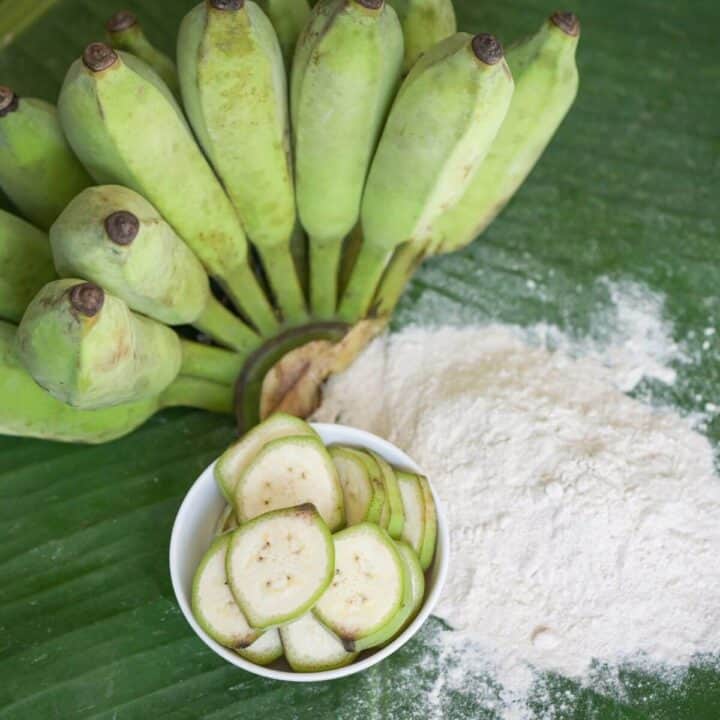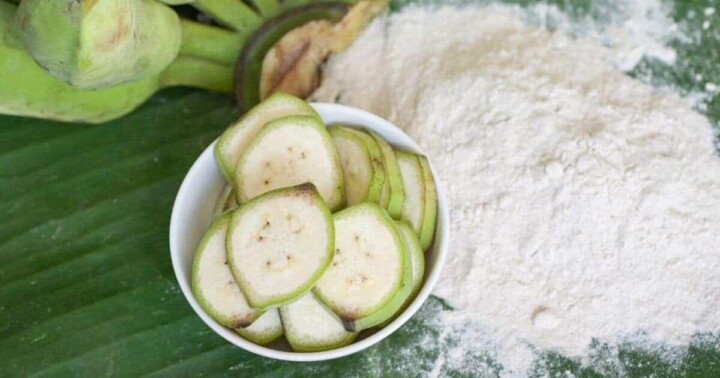This short-chain fatty acid (SCFA) is gaining recognition for its substantial impact on health. Here's an in-depth look at the top five health benefits of butyrate and why it should be a key focus in your diet. Plus, learn how to add more foods that naturally enhance butyrate production.

Table of Contents
In the quest for optimal health and wellness, many of us focus on vitamins, minerals, and other essential nutrients. However, one lesser-known yet incredibly beneficial compound is butyrate.
🩺 Butyrate Health Benefits
Let's explore some important butyrate health benefits. Butyrate levels impact everything from gut health, metabolic health, and immune function.

1. Supports Gut Health
One of the most significant benefits of butyrate is its role in maintaining and improving gut health. Butyrate is produced in the colon when gut bacteria ferment dietary fibers.
It serves as the primary energy source for colonocytes, the cells lining the colon.
By providing energy to these cells, butyrate helps maintain the integrity of the gut lining, which is crucial for preventing conditions like leaky gut syndrome and inflammatory bowel disease (IBD).
Research shows butyrate enhances the production of mucins, which are essential for forming a protective mucus layer in the intestines.
This protective barrier not only shields the gut lining from harmful pathogens, but also helps regulate the gut microbiome, ensuring a balanced and diverse microbial community.
2. Promotes Anti-Inflammatory Responses
Chronic inflammation is linked to a wide range of health issues, from heart disease to autoimmune disorders.
Butyrate plays a pivotal role in modulating inflammation in the body. It exerts its anti-inflammatory effects primarily by influencing immune cells and signaling pathways.
Butyrate can inhibit the production of pro-inflammatory cytokines, molecules that drive inflammation.
It also activates regulatory T cells, which help maintain immune system balance and prevent excessive inflammatory responses.
By reducing inflammation, butyrate can contribute to better overall health and lower the risk of inflammatory-related diseases.
3. Enhances Metabolic Health
Butyrate has a positive impact on metabolic health, including weight management and glucose regulation.
Studies indicate butyrate can improve insulin sensitivity, which is vital for maintaining stable blood sugar levels and preventing type 2 diabetes.
Butyrate influences several metabolic processes by affecting hormone secretion.
For example, it can increase the production of hormones like peptide YY and glucagon-like peptide-1 (GLP-1), both of which regulate appetite and enhance feelings of fullness.
This can lead to better weight management and reduced risk of obesity.
4. Supports Brain Function and Mental Health
Butyrate benefits extend beyond the gut and metabolic systems. It also plays a significant role in brain health.
Butyrate can cross the blood-brain barrier, where it exerts neuroprotective effects.
It influences brain function by promoting the production of brain-derived neurotrophic factor (BDNF), a protein crucial for cognitive function, learning, and memory.
Moreover, butyrate has been linked to mood regulation and mental health. It can help alleviate symptoms of depression and anxiety by modulating neurotransmitter levels and reducing neuroinflammation.
This suggests butyrate may have potential as a therapeutic agent for improving mental health and cognitive function.
5. Boosts Immune System Function
A well-functioning immune system is essential for defending the body against infections and diseases. Butyrate plays a crucial role in regulating immune system function.
It helps modulate the immune response by influencing the differentiation and activity of various immune cells.
Butyrate has been shown to enhance the function of regulatory T cells, which help prevent autoimmune responses and maintain immune system balance.
It also supports the production of anti-inflammatory cytokines while suppressing pro-inflammatory ones.
By promoting a balanced immune response, butyrate contributes to overall immune health and resilience.

⁉️ How To Increase Butyrate Levels
To reap the benefits of butyrate, consider incorporating more fiber-rich foods into your diet.
Foods like gluten-free whole grains, fruits, vegetables, and legumes are excellent sources of dietary fiber, which, when fermented by gut bacteria, leads to butyrate production.
Foods high in resistant starch, such as green bananas and cooked-and-cooled potatoes, are also effective in increasing butyrate levels.
Additionally, probiotic supplements containing specific strains of beneficial bacteria, such as Faecalibacterium prausnitzii, can help enhance butyrate production. These probiotics help maintain a healthy gut microbiome, further promoting butyrate synthesis.
Butyrate Plays Crucial Role In Overall Well-Being
Butyrate is a powerful but often overlooked nutrient with numerous health benefits.
From supporting gut health and reducing inflammation to improving metabolic health, brain function, and immune system performance, butyrate plays a crucial role in maintaining overall well-being.
By focusing on a diet rich in fiber and incorporating probiotics, you can boost your butyrate levels and enjoy its wide-ranging health benefits.
Embrace the power of butyrate and take a proactive approach to your health-your gut, brain, and immune system will thank you!

🦠 Powerful Connection Between Butyrate and Fiber: A Path to Better Gut Health
Butyrate, a short-chain fatty acid, plays a crucial role in maintaining a healthy gut. This vital compound is produced when beneficial bacteria in the colon ferment dietary fiber.
But why is butyrate so important, and how does fiber contribute to its production?
Dietary fiber, found in whole grains, fruits, vegetables, and legumes, is the key to stimulating the production of butyrate. When fiber reaches the colon, it serves as food for gut bacteria.
As these bacteria break down the fiber, they produce butyrate, which nourishes the cells lining the colon, strengthens the gut barrier, and reduces inflammation.
The link between butyrate and fiber is essential for overall well-being. Butyrate not only supports gut health but also has anti-inflammatory properties and may reduce the risk of colon cancer.
To boost butyrate production, it's important to include a variety of fiber-rich foods in your diet.
Incorporating more fiber into your meals can lead to increased butyrate levels, promoting a healthier gut and improving overall health.
Make fiber a daily priority, and let the natural production of butyrate work its magic.

📥 GET THIS RECIPE IN YOUR INBOX 📥
🥦 Top Foods High in Butyrate: Boost Your Gut Health Naturally
Butyrate, a short-chain fatty acid (SCFA), is essential for maintaining gut health and overall well-being.
Produced in the colon through the fermentation of dietary fibers by gut bacteria, butyrate has numerous health benefits, including supporting a healthy gut lining, reducing inflammation, and promoting metabolic health.
While butyrate is produced in the body, certain foods can help enhance its levels. Here's a guide to the top foods high in butyrate and how they can benefit your health.
1. Gluten-Free Whole Grains
Whole grains are a rich source of dietary fiber, which is crucial for butyrate production. Foods like oats and brown rice provide the necessary fiber for fermentation by gut bacteria, leading to increased butyrate levels.
Incorporating these grains into your diet can help support a healthy gut microbiome and enhance butyrate production.
2. Legumes
Legumes, including beans, lentils, and chickpeas, are excellent sources of dietary fiber and resistant starch, both of which promote the production of butyrate in the colon.
These fiber-rich foods not only help maintain healthy digestion but also contribute to better blood sugar control and weight management.
Adding legumes to your meals is a tasty way to boost butyrate levels and support overall gut health.
3. Vegetables
Vegetables are another great source of dietary fiber and resistant starch. Foods like sweet potatoes, carrots, and Brussels sprouts are particularly high in fiber and beneficial for butyrate production.
Asparagus, leeks, chicory root, and Jerusalem artichokes are full of prebiotic fiber, which feeds probiotics in your body and helps with butyrate production.
See my recipe for homemade roasted Jerusalem artichokes and chicory root coffee at the end of this article.
Additionally, cruciferous vegetables such as broccoli and cauliflower contain prebiotic fibers that feed beneficial gut bacteria, further enhancing butyrate synthesis.
Including various vegetables in your diet can help maintain a healthy gut and promote overall wellness.
4. Fruits
Certain fruits are rich in fiber and resistant starch, which support butyrate production.
Bananas, especially when they are slightly green, are a prime example of a fruit high in resistant starch.
Apples and pears also provide a good amount of fiber, contributing to butyrate levels and supporting digestive health.
Incorporating a range of fruits into your diet can help ensure you get the fiber needed to boost butyrate production.
5. Nuts and Seeds
Nuts and seeds are packed with healthy fats, but also offer significant amounts of dietary fiber. Almonds, walnuts, chia seeds, and flaxseeds can contribute to butyrate production by providing the fiber necessary for fermentation in the colon.
Additionally, these foods offer various other health benefits, including improved heart health and enhanced nutrient absorption. My personal favorites are pistachios and walnuts.
6. Chicory Root
This herb is worth noting all on its own. The prebiotic fiber, inulin, helps encourage natural buytrate production in the body. It's a great coffee alternative.
Chicory root is known for its numerous health benefits, particularly its high inulin content, a type of prebiotic fiber that promotes gut health.
One significant benefit is its ability to increase the production of butyrate, a short-chain fatty acid that serves as a primary energy source for the cells lining the colon.
By enhancing butyrate production, chicory root supports the maintenance of a healthy intestinal lining, improves digestive health, and may also play a role in reducing inflammation and preventing certain diseases.
Additionally, butyrate has been linked to better metabolic health and can help maintain a balanced microbiome, further showcasing the versatile benefits of incorporating chicory root into your diet.
☕️ Learn How to Make Chicory Root Coffee
📖 Recipe

Simple to Make Chicory Root Coffee
Equipment
- 1 Kettle
Ingredients
- 1 - 2 tablespoons chicory root, roasted (see tips below)
- 1 cup water (filtered is best)
Optional Add-Ins:
- milk of choice
- maple syrup
- honey, raw
- cinnamon, ground
- nutmeg, ground
Instructions
Roast the Chicory Root (If Not Pre-Roasted)
- If you have raw chicory root, you'll need to roast it first. Preheat your oven to 350°F (175°C). Spread the raw chicory root pieces on a baking sheet in a single layer. Roast the chicory root for 20-30 minutes, or until it turns dark brown and releases a nutty aroma. Keep a close eye on it to prevent burning. Allow the roasted chicory root to cool before grinding.
Grind the Roasted Chicory Root
- Once you have your roasted chicory root, the next step is to grind it. Using a coffee grinder, grind the roasted chicory root until it reaches the desired consistency. For a more robust brew, a finer grind is recommended, while a coarser grind will produce a milder flavor. The grind size can be adjusted based on your preference and brewing method.
Measure the Ground Chicory Root
- For a standard cup of chicory root coffee, measure one to two tablespoons of the ground chicory root per cup of water. If you're new to chicory root coffee, start with one tablespoon per cup and adjust according to taste. The more chicory you use, the stronger and more intense the flavor will be.
Boil the Water
- In a kettle or pot, bring fresh, filtered water to a boil. The amount of water depends on how many cups of chicory root coffee you're preparing.
Brew the Chicory Root Coffee
- Place the ground chicory root in your French press or chosen brewing device. Pour the boiling water over the ground chicory root, ensuring all grounds are saturated. Allow the mixture to steep for about five minutes. If you're using a French press, press the plunger down slowly after steeping to separate the grounds from the liquid. If you're using another brewing method, strain out the grounds.
Serve and Enjoy
- Pour the brewed chicory root coffee into your cup. At this point, you can enjoy it as is or customize it with your favorite add-ins. Some popular options include:Milk: Add coconut milk, almond milk, or dairy milk for a creamy texture.Sweeteners: Enhance the flavor with maple syrup, honey, or sugar.Spices: Sprinkle in some cinnamon, nutmeg, or vanilla for extra warmth and depth.
🌿 The Harmony Method™ Pillars Supported 🌿
Rotation | Gut-Hormone-Mood | Flavor Infusion | Mindful Meal Mapping
Nutrition
The information shown is an estimate provided by an online nutrition calculator. Modify as needed and enjoy.
©EatYourNutrition. Content & photos are copyright protected. I love when you share this recipe with others, but please make sure you give credit to this site. Copying, pasting, & posting entire recipes onto social media is prohibited.
Share on Facebook📥 GET THIS RECIPE IN YOUR INBOX 📥
LEAVE A RATING AND COMMENT
Please leave a rating and comment letting us know how you like this recipe.

🌿 How to Enhance Butyrate Production
To maximize butyrate levels, focus on a diet high in fiber from diverse sources. Aim to include gluten-free whole grains, legumes, vegetables, fruits, and nuts in your daily meals.
Cooking and cooling starchy foods, such as potatoes and rice, can also increase their resistant starch content, further promoting butyrate production.
In addition to dietary changes, consider incorporating probiotic-rich foods like yogurt, kefir, and fermented vegetables. Probiotics help maintain a healthy gut microbiome, which is essential for efficient butyrate production.
Support Gut Health With Foods High in Butyrate
Eating a diet rich in foods high in butyrate is a powerful way to support gut health and well-being.
Gluten-free whole grains, legumes, vegetables, fruits, and nuts provide the fiber and resistant starch necessary for butyrate production.
By incorporating these foods into your daily diet, you can naturally enhance butyrate levels, improve digestion, and enjoy a range of health benefits.
Make these nutrient-dense foods a staple in your diet to promote a healthier, more balanced gut and a happier you.

🧡 Learn How To Make Roasted Jerusalem Artichokes
📖 Recipe

Homemade Roasted Jerusalem Artichoke Recipe
Equipment
Ingredients
- 1 pound artichokes, Jerusalem (sunchokes)
- 3-4 cloves garlic, fresh minced
- 2-3 tablespoons extra virgin olive oil
- ½ cup cheese, parmesan-style grated (*or dairy-free vegan cheese)
- 1 teaspoon thyme, fresh (or ½ teaspoon dried thyme)
- 1 pinch sea salt (to taste)
- 1 pinch black pepper, ground (to taste)
Optional Ingredients
- 1 handful parsley, fresh (for garnish)
Instructions
Preheat the Oven:
- Preheat your oven to 400°F (200°C).
Prepare the Sunchokes:
- Wash and scrub the Jerusalem artichokes thoroughly to remove any dirt. There's no need to peel them, as the skin is edible and adds a nice texture.
- Slice the sunchokes into ¼-inch thick rounds.
Season the Sunchokes:
- In a large mixing bowl, toss the sliced sunchokes with olive oil, minced garlic, thyme, salt, and pepper until evenly coated.
Roast the Sunchokes:
- Spread the seasoned sunchokes in a single layer on a baking sheet lined with parchment paper or lightly greased.
- Roast in the preheated oven for about 25-30 minutes, or until the sunchokes are golden brown and tender. Halfway through the roasting time, flip them to ensure even cooking.
Add the Cheese:
- Remove the baking sheet from the oven and sprinkle the grated cheese over the roasted sunchokes.
- Return the baking sheet to the oven and roast for an additional 5 minutes, or until the cheese is melted and bubbly.
Serve:
- Transfer the roasted sunchokes to a serving dish. Garnish with fresh parsley if desired, and serve immediately.
🌿 The Harmony Method™ Pillars Supported 🌿
Rotation | Gut-Hormone-Mood | Flavor Infusion | Mindful Meal Mapping
Nutrition
The information shown is an estimate provided by an online nutrition calculator. Modify as needed and enjoy.
©EatYourNutrition. Content & photos are copyright protected. I love when you share this recipe with others, but please make sure you give credit to this site. Copying, pasting, & posting entire recipes onto social media is prohibited.
Share on Facebook📥 GET THIS RECIPE IN YOUR INBOX 📥
LEAVE A RATING AND COMMENT
Please leave a rating and comment letting us know how you like this recipe.
High Butyrate Recipes
🗣️ Let's Discuss Dietary Changes to Maximize Butyrate Levels
So, have you tried any of these dietary changes that impact butyrate levels in our body before? Let me know your personal experience below.
You can also connect with me @EatYourNutrition on Instagram. I love seeing your photos. #EatYourNutrition #LauraVillanueva
👉 Additional Resources
Also, for further reading and guidance on how to support your gut health with foods high in butyrate, check out some of my resources below.
Suspect you have a gut imbalance or simply want to improve your gut and hormone health. Download my guide, 10 Simple Ways To Support Your Gut Health Naturally
- Program: Join my Restore Your Gut Health Fundamentals Program. Register today.

- Meal Plan: Want a simple recipe guide and gut healthy meal plan packed with the key to help get your gut health back on track? Order this meal plan and recipes inside the Gut Health Reset Meal Plan.
- Group Support: Join my Featured Nutrition Challenge. All seasonal nutrition challenges come with a meal plan, recipe guide, grocery shopping list, and a seasonal featured nutrition theme.
























Comments
No Comments